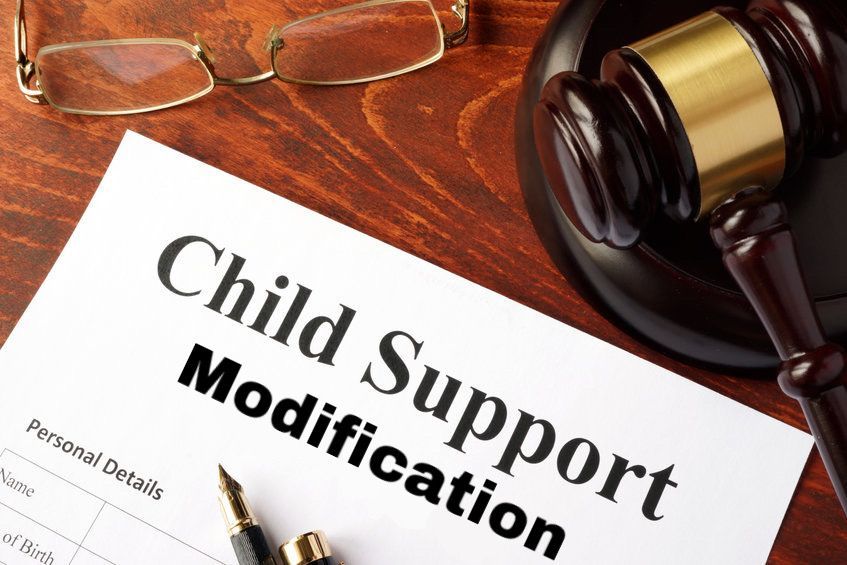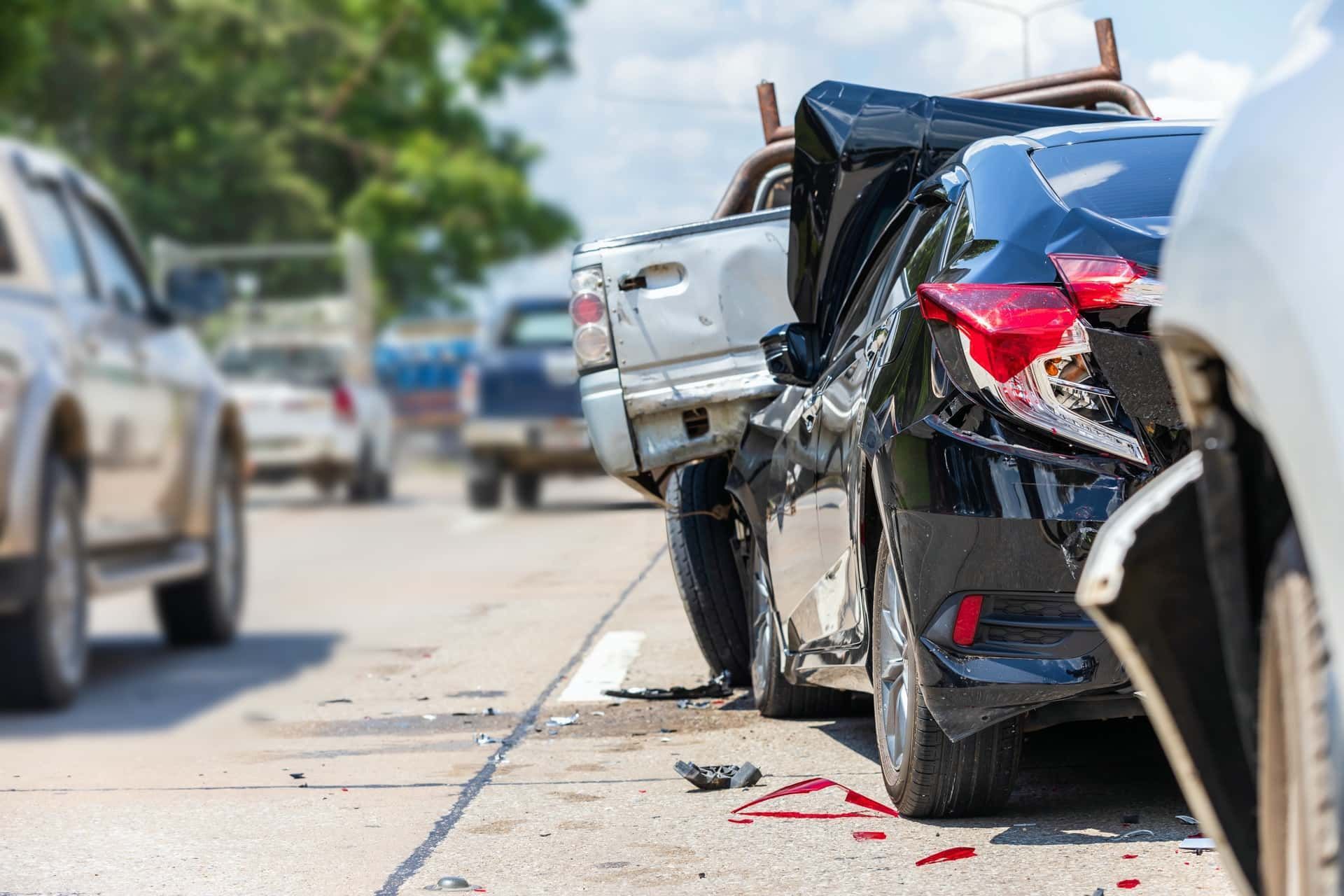How Much Compensation for Anxiety After a Car Accident?
The amount of compensation for anxiety after a car accident ranges from $2,000 to $15,000 for mild, short-term anxiety to $20,000 to $75,000 for moderate cases needing ongoing therapy. Severe anxiety or PTSD can bring $100,000 or more. How much you get depends on how bad your anxiety is, if you have a doctor's diagnosis, how long you need treatment, and how much it affects your daily life.

What Is Anxiety After a Car Accident?
A car crash can hurt more than just your body. Many people feel scared, worried, or nervous long after the accident is over. This is called anxiety, and it's just as real as a broken bone.
How Anxiety Shows Up
When you have anxiety from a car accident, you might notice:
- Your heart beats fast when you think about driving
- You can't sleep well or have bad dreams about the crash
- You feel scared to get in a car again
- You worry all the time, even about small things
- You avoid places that remind you of the accident
- You get sudden panic attacks where you can't breathe
These feelings can last for weeks, months, or even years. They can make it hard to work, spend time with family, or do things you used to enjoy.
Why Car Accidents Cause Anxiety
Car accidents happen suddenly and can be very scary. One moment you're driving along, and the next there's a loud crash, broken glass, and fear. Your brain remembers this scary moment and tries to protect you by making you feel anxious around cars or driving.
Research from Oxford University shows that one in three people who go through a car accident suffer from anxiety, depression, or fear one year later. Even if you weren't badly hurt in the crash, your mind might still be dealing with the trauma.
Types of Anxiety From Car Accidents
Not everyone gets the same kind of anxiety after a crash. Here are the main types:
Fear of Driving
This is the most common type. You might feel terrified to get behind the wheel again. Some people can't even sit in a car without feeling panic. Studies show that about 40% of crash survivors have a lasting fear of driving.
Generalized Anxiety
You might feel worried and nervous all the time, not just about driving. Everything feels harder, and you can't relax like you used to.
Panic Attacks
These are sudden waves of intense fear. Your heart races, you sweat, your hands shake, and you feel like something terrible is about to happen. Sights, sounds, or smells that remind you of the crash can trigger these attacks.
Post-Traumatic Stress Disorder (PTSD)
This is the most serious form of anxiety. With PTSD, you might:
- See the crash happen again in your mind (flashbacks)
- Have nightmares about the accident
- Feel on edge all the time
- Avoid anything that reminds you of the crash
- Have trouble sleeping or focusing
Research shows that between 25% to 33% of car accident victims experience PTSD symptoms at least 30 days after the crash.
How Much Money Can You Get?
The amount of money you can get for anxiety depends on how serious your symptoms are and how much they affect your life.
Mild Anxiety: $2,000 to $15,000
You might get this amount if your anxiety:
- Goes away after a few weeks or months
- Needs only a few therapy sessions (about 4 to 8)
- Doesn't require medicine
- Doesn't stop you from working or doing normal activities
With mild anxiety, you're nervous for a while but eventually get back to normal life.
Moderate Anxiety: $20,000 to $75,000
You could get this range if your anxiety:
- Is diagnosed by a mental health doctor
- Requires therapy for several months to a year
- Needs prescription medicine to manage
- Makes it hard to drive or do your regular routine
- Affects your job or relationships
At this level, anxiety is a real problem that changes how you live each day.
Severe Anxiety or PTSD: $100,000 to $1,000,000+
You might get this much if you have:
- A formal PTSD diagnosis from a psychiatrist
- Need for intensive, long-term treatment (years)
- Multiple medications for anxiety, sleep, and depression
- Complete inability to drive
- Job loss or reduced work hours
- Damaged relationships with family and friends
- Life-changing mental health issues
Recent settlement data shows the average PTSD settlement ranges from $50,000 to $100,000, with the median settlement at $100,000 for car accident cases specifically.
Real Examples
Here are some real settlement amounts from recent cases:
- $25,000: A woman and her child were in an accident. The child developed PTSD, and both had emotional distress.
- $90,000: Someone was rear-ended and developed anxiety that prevented them from working normally.
- $890,000: A young mother was hit by a distracted driver. She developed severe PTSD that made it impossible to care for her child.
- $1,200,000: A software developer was in a head-on crash and developed severe PTSD with an inability to drive again.
What Affects How Much You Get?
Several things determine how much money you can receive for your anxiety.
Severity of Your Symptoms
The worse your anxiety, the more money you can get. If you just feel nervous sometimes, that's worth less than if you can't leave your house or work because of panic attacks.
Doctor's Diagnosis
Having a formal diagnosis from a psychiatrist or psychologist makes a huge difference. Insurance companies take your claim more seriously when a mental health professional says, "This person has generalized anxiety disorder" or "This is PTSD."
Treatment Records
The more treatment you get, the stronger your case. This includes:
- Regular therapy sessions
- Medication prescriptions
- Hospital visits
- Mental health evaluations
Keep records of every appointment, every prescription, and every bill.
How Long You Suffer
Anxiety that lasts for months or years is worth more than anxiety that goes away in a few weeks. If doctors say your anxiety will never fully go away, you deserve more money.
Impact on Your Life
Insurance companies want to know: How has anxiety changed your life? Consider:
- Work: Did you lose your job? Miss many days? Have to change careers?
- Daily activities: Can you drive? Shop? Take your kids to school?
- Relationships: Has anxiety made you withdraw from family or friends?
- Sleep: Do you lie awake at night or have nightmares?
- Health: Has anxiety caused other problems like headaches or stomach issues?
The more areas of your life that are affected, the more money you can get.
Physical Injuries Too
If you have both physical injuries and anxiety, your total settlement is usually higher. Courts understand that dealing with broken bones AND mental trauma is harder than either alone.
How Insurance Calculates Anxiety Payments
Insurance companies use two main ways to figure out how much to pay for anxiety.
The Multiplier Method
This is the most common way. Here's how it works:
Your Economic Damages × Multiplier = Pain and Suffering Payment
Economic damages are things like:
- Medical bills: $10,000
- Therapy costs: $3,000
- Medication: $1,000
- Lost wages: $5,000
- Total: $19,000
The multiplier is a number between 1.5 and 5. For:
- Mild anxiety, they use 1.5 to 2
- Moderate anxiety, they use 2.5 to 4
- Severe anxiety or PTSD, they use 4 to 5 or higher
Example: If you have moderate anxiety with $19,000 in economic damages and they use a multiplier of 3:
$19,000 × 3 = $57,000 for pain and suffering
Your total settlement would be $19,000 + $57,000 = $76,000.
The Per Diem Method
"Per diem" means "per day" in Latin. With this method, they assign a dollar amount to each day you suffer from anxiety.
Daily Rate × Number of Days = Anxiety Compensation
The daily rate is often based on what you earn per day at work. Let's say you make $200 a day.
If you have anxiety for one year (365 days):
$200 × 365 = $73,000
This method works well when you can show exactly when your anxiety started and when it got better.
How to Prove You Have Anxiety
Anxiety is invisible. You can't see it on an X-ray. This makes it harder to prove than a broken leg. Here's what you need:
See a Mental Health Professional Quickly
As soon as you notice anxiety symptoms, see a therapist, psychologist, or psychiatrist. The sooner you go, the easier it is to connect your anxiety to the accident.
Don't wait weeks or months. Insurance companies will say, "If the accident really caused anxiety, why did you wait so long to get help?"
Get a Formal Diagnosis
Ask your mental health provider for a formal diagnosis. This might be:
- Generalized Anxiety Disorder
- Panic Disorder
- Post-Traumatic Stress Disorder
- Adjustment Disorder with Anxiety
A diagnosis makes your claim much stronger.
Keep Going to Therapy
Go to every appointment your therapist recommends. If they say come weekly, go weekly. Gaps in treatment make insurance companies think you're not really suffering.
Take Your Medicine
If your doctor prescribes anxiety medication, take it as directed. Fill all your prescriptions. Keep the receipts.
Write It Down
Keep a journal where you write:
- How anxious you feel each day (rate it 1 to 10)
- What symptoms you have
- What activities you can't do anymore
- How anxiety affects your work and family
- When you have panic attacks or bad dreams
This journal is powerful evidence that shows how anxiety affects you every single day.
Get Statements From Others
Ask family, friends, or coworkers to write short statements about how they've seen you change since the accident. They might say:
- "She used to love driving but now won't even get in a car."
- "He's irritable and jumpy all the time now."
- "She calls in sick to work much more than before."
These outside observations prove you're not making it up.
Document Everything
Save copies of:
- All medical records
- Therapy session notes
- Prescription receipts
- Bills for mental health treatment
- Notes from your journal
- Statements from family and friends
The more proof you have, the better.
Common Problems With Anxiety Claims
Getting paid for anxiety is harder than getting paid for physical injuries. Here are the main problems:
Insurance Companies Don't Believe You
Because anxiety is invisible, insurance adjusters often say:
- "You're exaggerating."
- "You're making it up to get more money."
- "This is just normal stress, not a real injury."
This is why documentation is so important. You need hard proof.
They Blame Other Things
Insurance companies will try to say your anxiety comes from:
- Stress at your job
- Problems in your marriage
- Money worries
- Other life issues
Your mental health provider needs to clearly state: "This anxiety is directly caused by the car accident."
Pre-Existing Anxiety
What if you already had anxiety before the accident? You can still get paid if the accident made it worse. But you'll need medical records showing:
- How your anxiety was before (maybe you managed it with occasional therapy)
- How it got much worse after the crash (now you need weekly therapy and multiple medications)
Mental-Only Claims Are Harder
If you have anxiety but no physical injuries, insurance companies are extra skeptical. These cases require:
- Extra strong medical proof
- Very detailed treatment records
- Clear testimony from mental health experts
If you only have emotional injuries, expect the insurance company to fight harder.
Steps to Get Compensation
Here's what to do to get money for your anxiety:
Step 1: Get Medical Help Right Away
See a doctor after the accident for your physical injuries. But also see a mental health professional as soon as you notice anxiety symptoms.
Step 2: Follow All Treatment
Go to every therapy session. Take all prescribed medicine. Do everything your mental health provider recommends.
Step 3: Document Everything
Keep detailed records of symptoms, treatment, costs, and how anxiety affects your life.
Step 4: Don't Talk to Insurance Without a Lawyer
Insurance adjusters will try to get you to say things that hurt your case. They might record you or ask tricky questions. Don't give statements without talking to an experienced personal injury attorney first.
Step 5: Calculate Your Damages
Add up all your costs:
- Therapy bills
- Medication costs
- Lost wages from missed work
- Other expenses caused by anxiety
Then add the pain and suffering using the multiplier method.
Step 6: Make a Demand
Your lawyer will write a demand letter to the insurance company explaining:
- What happened in the accident
- Your anxiety diagnosis
- Your treatment
- How anxiety has affected your life
- How much money you want
Step 7: Negotiate
The insurance company will probably offer less than you asked for. Your lawyer will negotiate back and forth until you reach a fair amount.
Step 8: Consider Going to Court
If the insurance company won't offer a fair amount, you might need to file a lawsuit. With a strong case, a jury might award you more money than the insurance company wanted to pay.
Rhode Island and Anxiety Claims
If your accident happened in Rhode Island, here's what you should know:
No Damage Caps
Rhode Island doesn't limit how much you can get for pain and suffering in car accident cases. This means there's no ceiling on anxiety compensation. If you have severe PTSD, a jury can award whatever amount they think is fair.
Comparative Fault
If you were partly at fault for the accident, your payment gets reduced by your percentage of fault. For example:
- Your total damages: $100,000
- You were 20% at fault
- You get: $80,000 (reduced by 20%)
Three-Year Deadline
In Rhode Island, you have three years from the accident date to file a lawsuit. Don't wait too long. Even though anxiety symptoms might develop slowly, the clock starts ticking on the day of the crash.
Strong Evidence Needed
Rhode Island courts take anxiety seriously, but you need strong proof. Make sure you have:
- Clear medical diagnosis
- Consistent treatment records
- Expert testimony from mental health professionals
- Documentation of life impact
Tips to Get Maximum Compensation
Want to get the most money for your anxiety? Follow these tips:
Don't Delay Treatment
The longer you wait to see a mental health professional, the weaker your case becomes.
Be Honest With Your Doctors
Tell your therapist everything. If you're having trouble at work, say so. If you're fighting with your spouse, mention it. The more your doctor knows, the better they can document your condition.
Follow Treatment Plans Exactly
If your therapist says come every week, don't skip sessions. If medicine is prescribed, take it. Insurance companies look for reasons to deny claims, and gaps in treatment are a big red flag.
Don't Minimize Your Symptoms
Some people downplay how bad they feel because they don't want to seem weak. But in your medical appointments, be completely honest about:
- How scared you feel
- How often you have panic attacks
- How much you avoid driving
- How anxiety affects your sleep and work
Keep Detailed Records
The more documentation you have, the stronger your case. Keep everything organized in one place.
Don't Post on Social Media
Insurance companies check social media. If you post pictures of yourself having fun, they'll say, "You're not really suffering from anxiety." Stay off social media or set everything to private.
Get Expert Help
Work with a lawyer who has experience with car accident injuries, including mental health claims. They know how to:
- Value your case correctly
- Gather the right evidence
- Present your claim effectively
- Negotiate with insurance companies
- Take your case to trial if needed
Why You Need a Lawyer
Getting fair compensation for anxiety is complicated. Here's why you should work with an experienced attorney:
Insurance Companies Will Lowball You
The first offer is almost always too low. Insurance adjusters know most people don't know what their case is worth. A lawyer knows the real value.
Anxiety Claims Are Harder to Prove
Physical injuries are straightforward. Anxiety requires special documentation and expert testimony. Lawyers know what evidence you need.
Lawyers Handle the Insurance Company
You can focus on getting better while your lawyer deals with paperwork, phone calls, and negotiations.
They Know the Law
Every state has different rules. An experienced Rhode Island attorney knows how local courts handle anxiety claims.
They Work on Contingency
Most personal injury lawyers don't charge anything unless they win your case. They take a percentage of your settlement, so they're motivated to get you the most money possible.
Better Results
Studies show people with lawyers get more money than people who handle claims themselves. Even after paying lawyer fees, you usually end up with more.
Questions People Ask
Can I Get Money for Anxiety Even Without Physical Injuries?
Yes, but it's harder. You need very strong medical documentation and expert testimony to prove the accident caused your anxiety. Rhode Island allows these claims, but insurance companies fight them more.
What If I Already Had Anxiety Before the Accident?
You can still get compensation if the accident made your anxiety worse. Your doctor needs to show how your condition changed after the crash.
How Long Do I Have to File a Claim?
In Rhode Island, you have three years from the accident date. But don't wait. The sooner you start, the fresher the evidence is.
Do I Have to Go to Court?
Most cases settle without going to trial. But having a lawyer who's willing to go to court gives you leverage in negotiations.
What If the Other Driver Doesn't Have Insurance?
You might be able to use your own insurance under uninsured motorist coverage. Talk to a lawyer about your options.
Can My Family Get Money Too?
If your anxiety has hurt your relationships, your spouse might be able to claim "loss of consortium." This means compensation for how the accident has damaged your marriage.
Final Thoughts
Anxiety after a car accident is real, painful, and deserves compensation. Whether you're dealing with mild nervousness or severe PTSD, you have the right to get money for your suffering.
The amount you can get ranges from a few thousand dollars to over a million, depending on how serious your condition is. The key is having strong medical proof, consistent treatment, and clear documentation of how anxiety has changed your life.
Don't let an insurance company tell you that your mental health doesn't matter. Anxiety can be just as disabling as a broken bone. In fact, research shows that one-third of car accident victims still struggle with anxiety one year after the crash.
If you're dealing with anxiety, fear, panic attacks, or PTSD after a car accident, get help from a mental health professional right away. Then talk to an experienced lawyer who can help you get fair compensation.
At Inman & Tourgee, our Rhode Island attorneys have over 125 years of combined legal experience and have recovered over $50 million for injured clients. We understand that car accidents cause more than just physical harm. We fight to get you compensation for all your injuries including the ones you can't see.
Call us today at 888-271-3905 for a free consultation. Let us help you get the money you deserve so you can focus on healing.
You don't have to face this alone. We're here to help.











